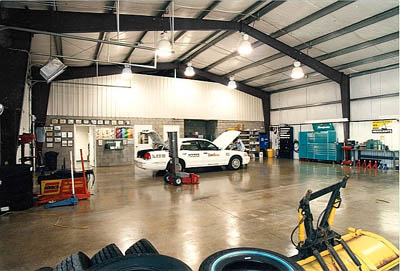If your business has a number of vehicles at its disposal and they are all used at some point or another by the employees of your company, then you should look into fleet management. Utilizing this tool will enable your company to save money in a variety of ways.
One of the most important reasons why companies that have employees working remotely use fleet management services in regards to the business’ vehicles is to ensure that the cars, trucks, and vans are all maintained properly. That means that they are all brought in for regular maintenance, which includes oil changes, brake system checks, and tire rotation, just to name a few.
By ensuring that your company’s vehicles are properly maintained, you cut down on breakdowns, which can lead to costly delays for both you and your customers. In addition, having a fleet that is well maintained will help drivers avoid receiving tickets when stopped by the police for safety checks. Cars and trucks that receive routine maintenance are more fuel efficient, as well.
Driver safety is another reason why many businesses turn to fleet management. The Bureau of Labor Statistics has found that up to 40 percent of fatal workplace injuries happen due, at least in part, to transportation incidents. This includes a combination of both driver behavior and faulty vehicles.
When vehicles are not maintained, there is more of a chance that the brakes will fail, the steering system malfunctions, or the engine stalls and leads to catastrophe. You are responsible to not only to keep your employees safe; you are also charged with providing a measure of protection to those who share the road with your drivers. Vehicle maintenance is the first step in protecting both groups.
Not only are well-maintained vehicles safer to drive, but knowing that there is someone acutely aware of their driving habits can make your drivers pay more attention to the rules of the road and not take as many risks. Speeding, weaving, and tailgating will diminish and therefore make the roads safer for all.
Another way that fleet management can improve your bottom line is by scheduling maintenance to occur during off-road hours. By doing so, you reduce the number of unexpected breakdowns without impacting the overall usefulness of your fleet. Furthermore, downtime can sideline a driver and impact customer service because when a vehicle is out of commission, you incur the expense of losing a valuable resource for your business unless you are willing to pay for a replacement rental.
By using GPS tracking you can trigger maintenance reminders based on the number of hours each has been in service or by the amount of mileage that is incurred. These are both accurate measures and the proper approach for preventative maintenance. Therefore, your company’s vehicles can be out in the community more often as a testament to the quality of your business practices. Moreover, this can enable you to keep your vehicles running for over 200,000 miles before replacement is necessary.

















